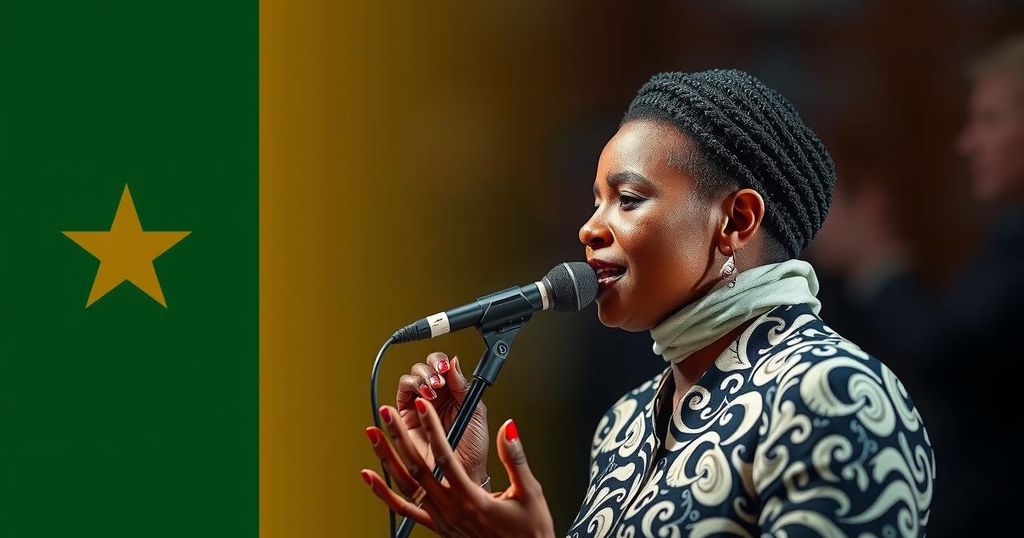Namibia Elects Its First Female President Amid Election Disputes

Namibia has elected Netumbo Nandi-Ndaitwah as its first female president, winning 57% of the votes and extending the ruling Swapo party’s dominance. Despite her victory, opposition parties contest the results due to reported election discrepancies. This election reflects significant political dynamics in Namibia and southern Africa, contrasting with the recent electoral losses faced by other incumbent liberation movements.
Namibia has elected its first female president, Netumbo Nandi-Ndaitwah, following the recently contested presidential elections. Nandi-Ndaitwah, the incumbent vice president, secured 57% of the vote, surpassing initial expectations for a runoff. Her victory maintains the Swapo party’s dominance, which has held power since Namibia’s independence in 1990. Nandi-Ndaitwah emphasized that “the Namibian nation has voted for peace and stability” after the final results were announced.
Despite her victory, opposition parties have raised concerns over the election’s integrity, citing technical difficulties such as ballot paper shortages, which led to the extension of voting. They have vowed to contest the results in court, calling the extension illegal. The second place was claimed by Panduleni Itula of the Independent Patriots for Change (IPC), who received 25.5% of the votes, demonstrating a decline from his previous performance.
Nandi-Ndaitwah’s leadership is characterized by her experience as a member of the underground independence movement and her diplomatic background, which has kept her largely untainted by the corruption scandals affecting other Swapo members. Her election is significant in the context of southern Africa, where incumbent liberation movements have recently faced setbacks from younger voters. This contrasts with similar parties in neighboring countries, such as the ANC in South Africa, which lost its parliamentary majority this year.
The election of Netumbo Nandi-Ndaitwah as Namibia’s first female president marks a significant milestone in the nation’s political landscape. Swapo, the ruling party since Namibia’s independence from apartheid South Africa in 1990, has been challenged in recent years by discontent among younger voters. The increasing scrutiny of governance and allegations of corruption have heightened opposition efforts to unseat long-standing incumbents. Nandi-Ndaitwah, known for her dedication to peace and stability, emerges as a figure of continuity in a changing political climate.
In conclusion, the election of Netumbo Nandi-Ndaitwah as Namibia’s first female president underscores both a historical achievement and ongoing challenges within the country’s political environment. While her victory reinforces the Swapo party’s grip on power, the opposition’s allegations of electoral impropriety suggest a lingering discontent among voters, particularly the younger demographic. This election could serve as a critical moment for Namibia as it navigates its democratic future.
Original Source: www.theguardian.com







